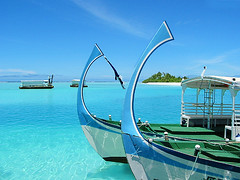Most students have done a terrific job of summarizing the bios of the 5 presidents associated with the Vietnam conflict. Most have succesfully integrated terms from general knowledge of the army and war, such as guerilla warfare (French: guerre, "war, therefore, guerilla, "little war").
Truman: inherited the presidency and the decision of whether to drop the A bomb. Reasoned that it would ultimately save lives by bringing a quicker end to the war.
Eisenhower: 5-star general whose strategy helped defeat Hitler. As president, defined the Cold War as a mostly covert struggle against communism and communism's Domino Effect.
JFK: was able to out-poll the experienced leader Richard Nixon by virtue of his youthful good looks in the first televised presidential debate, 1960. Very slim margin of victory, reminding us of the Bush Vs. Gore election. JFK assassinated in 1963.
Lyndon Johnson: became president upon JFK's death. Used Gulf of Tonkin Resolution to make war against the North Viet communists.
Continually raised troop strength over several year period but could not produce a victory. His team thoroughly underestimated the enemy (sound familiar, as in Iraq?).
Using the draft to fill the ranks of the Army, incurred the wrath of the student protest movement. Demonstrations against the war - doves vs. hawks - grew from campus activity to large-scale marching in cities. Culminated with March on Washington (250,000 participants) in 1968.
Troop deployment in Vietnam peaks in '68 at some 500,000. The NVA & VC make a dramatic victory in '68 by a large-scale, surprise attack against our strongholds. Called the Tet Offensive, it marks a turning point in the war.
Richard Nixon: determined to best the communists Nixon used heavy bombing of North Vietnam to gain an advantage. Somehow, Ho Chi Minh's forces held out. Overall, Nixon managed the US exit from 'Nam. he also won praise by opening trade with communist China, at the time a backwards nation and "sleeping giant."
Nixon resigned in '74 due to the Watergate Scandal.
He and his aides had denied involvement in various "dirty tricks" against the Democrats in the election of '68. Journalists kept the inquiry alive and after several years of determined reporting, found the evidence that Nixon had known about the chicanery of his re-election team. When the US public learned that the president had lied about his involvement, Nixon lost the nation's support. he resigned rather than face impeachment.
skip to main |
skip to sidebar
For students and parents who love education and exploration of the social sciences . . .
Search This Blog
Followers
Blog Archive
-
▼
2006
(381)
-
▼
November
(34)
- The Peace Symbol originated in Britain during the ...
- What happened to the US in Vietnam: an essay due T...
- A laptop for Christmas? I recommend it for your st...
- Class of 2010 talent Show
- The significant stimulation of a tiny shot of espr...
- The global peregrinations of the potable known as ...
- 5 presidents timeline project to be followed by Ve...
- Soldier interview: it is history and you are a his...
- Viet vet interview: substituting a Korean War vet ...
- Vietnam is cool: Jolie & Pitt jazz around Ho Chi M...
- Five Presidents, the Cold War and Vietnam
- Viet map project: All eyes on 'Nam, 1950 - 1975
- Why photos of Vietnam soldiers look the way they d...
- test post
- Questions for Vietnam Veteran Interview Project - ...
- Vietnam map & open notes quiz Fri, Nov 17
- Indochina was the name for the nations of South Ea...
- India once had many diamond mines and also mined s...
- Traditional entertainment of India: a snake charmer
- Guerilla warfare as practiced by Ho Chi Minh's tro...
- Modern Girl in Ho Chi Minh City (formerly Saigon)
- Cambodia - the Angkor Wat temple complex
- Vietnam & Southeast Asia & the US Conflict
- Class of 2010 Talent Show tryouts Th, Nov 16, Mon,...
- Digital presentations worked on in thhe newly refu...
- Apathy came up in class in regards Gandhi
- Protest - when does it become sedition? Answer: ...
- Gangway for Gandhi! Second stop, London
- Nihang Singh, holy man of the region along the Pak...
- Tandoori Chicken, an item from Indian cuisine that...
- Week Nov 6 - 11: project on Indian studies due Thu...
- Leadbelly one of North Louisiana's most famous per...
- Ganesha, one of the more popular gods of Hinduism ...
- An overview of the life of MK Gandhi
-
▼
November
(34)

